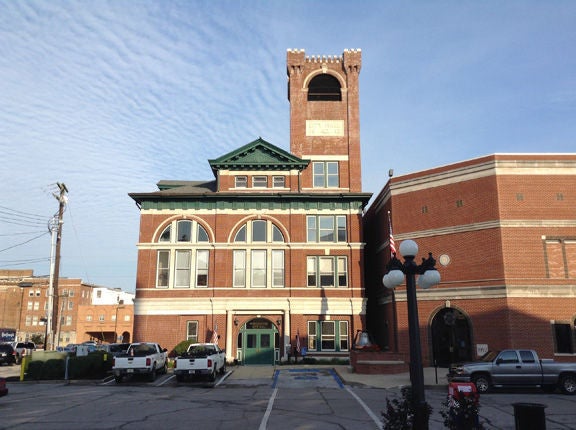Draft ordinance on property issues reviewed by Winchester City Commission
Published 4:30 pm Monday, February 26, 2024
|
Getting your Trinity Audio player ready...
|
As per usual, numerous agenda items were featured at both the 4:00 and 5:30 p.m. meetings of the Winchester City Commission on Tuesday, Feb. 20th.
Specifically, one of the items was to review a draft ordinance on abandoned urban property and blighted urban property with a draft abandoned/blighted property checklist.
According to LegalMatch.com, “The legal word for land that is dilapidated, hazardous, or unattractive is ‘blighted property.’ Each state has its own set of property laws for determining whether a property is blighted.”
The meeting took place just one week after the demolition of the outer facade of the building located at 71 S. Main Street.
“We tried to not make it huge or so complicated,” said Winchester City Manager Mike Flynn, speaking before the commission. “We wanted to make it to where it was understandable and put it before you tonight and take questions and take your comments as well as those [from who] may be here and want to ask questions or provide their input on this ordinance.”
Enacted by the Kentucky General Assembly, Kentucky Revised Statute (KRS) 92.305 permits cities of the Home-Rule class – of which Winchester qualifies – to a separate rate of taxation on abandoned and blighted urban properties under the provisions of KRS Chapters 92, 99, and 132.
According to the drafted ordinance, the Winchester Board of Commissioners finds and declares that abandoned and blighted urban properties exist.
Such properties require greater code enforcement activities, maintenance, and services such as police and fire protection by the city, which can result in significant financial costs for the City of Winchester.
With a commitment to eliminating and rehabilitating blighted, vacated, or abandoned real properties, the Board of Commissioners of the city of Winchester – in the drafted ordinance – sought to adopt and codify certain language.
For example, abandoned or blighted urban properties shall be classified as real property for tax purposes.
Also, the rate of ad valorem taxation levied upon abandoned urban properties is one dollar fifty cents ($1.50) on each one hundred dollars ($100) of value, with all money and funds derived from the Abandoned Urban Property tax under the provisions of said chapter being paid to the city of Winchester and placed to the credit of the city’s general revenue fund for the general expenses and purposes of the city.
The draft ordinance also mentioned responsibilities delegated to the Code Enforcement Officer, and addressed severability.
The latter is a provision in a piece of legislation allowing the remainder of the legislation to remain effective in the unlikely event that any individual terms or provisions are declared void or unenforceable.
Winchester First Director Cameron Correll presented items to be checked off when deeming if a property could be considered abandoned or blighted.
According to LegalMatch, frequent qualifiers for a property being deemed as such include a determination that the property is uninhabitable, has been abandoned for a set period of time such as one year, and poses an immediate threat to other property or individuals.
She also offered financial recommendations.
“We have recommended that if any of the tax collected from downtown building be like what you recommended, [they] be put into the [Downtown Development Investment] Fund so that we can reward property owners and business owners who are doing the right things, who are renting their buildings, and are actively recruiting,” Correll said.
Correll also mentioned a priority of Winchester First being to ensure that buildings downtown remain safe and ready for new business.
Members of the general public spoke about the issue,
Chad Walker, owner of The Engine House, was one.
“I would recommend too to not just [consider] properties that are abandoned [and] blighted…but that you also have a watch list,” he said. “That kind of puts people on notice that there’s not a fine, but there are some issues here.”
Several suggestions and questions surrounding what actions could be taken were also discussed.
The ordinance is expected to be an agenda item at an upcoming meeting of the Winchester City Commission.
“I’d just like to thank those who have been working on this diligently,” said Winchester Mayor JoEllen Reed. “I think we’re undergoing some major change in this community right now, positive change, and appreciate everyone’s input.”






